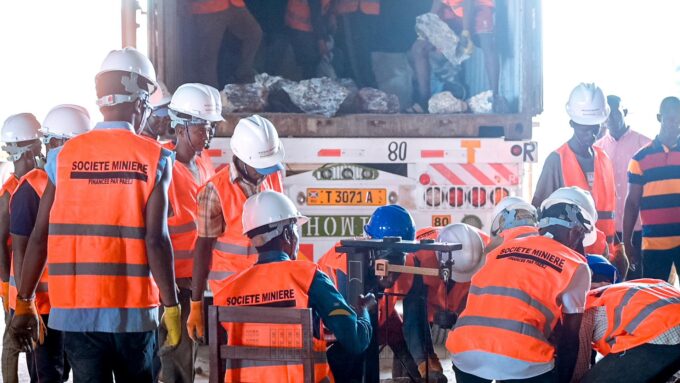The Burundian government on Thursday launched a sweeping crackdown on businesses that fail to comply with tax regulations, including the mandatory use of electronic billing machines. The operation, led by Finance Minister Nestor Ntahontuye and Emmanuel Mbonihankuye, Director General of the Burundi Revenue Authority (OBR), is part of a broader strategy to recover unpaid taxes and revive the country’s struggling economy.
Shops, stores, and other business establishments across Bujumbura were shut down for failing to pay taxes on time or neglecting to use the required billing systems designed to promote fiscal transparency.
“We inspected whether electronic billing machines are in use,” said Minister Ntahontuye. “While some businesses complied, others either lacked the machines entirely or used them to issue far fewer invoices than the actual sales volume.”
The minister noted that affected businesses had already been formally notified by OBR. They will be allowed to reopen only after settling their tax obligations and becoming fully compliant with the system.
Low Uptake of Billing Machines
Since the launch of a national campaign in 2023 to combat tax evasion, the government has distributed thousands of electronic billing machines. In April 2025, a second phase saw the rollout of 5,000 additional devices in Bujumbura’s bustling downtown and Quartier Asiatique. However, uptake remains critically low.
“As of yesterday, only 977 of the 5,000 machines had been collected,” Ntahontuye said.
OBR’s Director of Internal Taxes and Non-Fiscal Revenues, Déo Hatungimana, had previously urged businesses to secure the machines—available for a fee of BIF 1.5 million—within five days of the April 14 deadline. He warned that sanctions would follow for non-compliance.
Legal Sanctions and Penalties
The crackdown comes amid government frustration over widespread tax evasion. During a meeting with public sector institutions on Wednesday, Minister Ntahontuye expressed concern over significant revenue losses.
“The country is losing a lot of money because many traders are still refusing to use electronic billing machines,” he said. “We are now taking legal measures to hold these individuals accountable.”
Under current tax regulations, any business failing to issue electronic invoices will face fines equivalent to 100% of the undeclared amount. Even customers are not exempt—those caught with un-invoiced goods risk having their purchases confiscated and must pay a 20% penalty to recover them.
Businesses with tax debts ranging from BIF 50 million to BIF 2 billion were among those shut down in this week’s operation.
Government Signals Zero Tolerance
The use of billing machines is mandatory for businesses with annual stock values exceeding BIF 50 million. VAT liability is triggered immediately upon reaching this threshold. This measure, debated in May by lawmakers during discussions on the 2025–2026 national budget, aims to curb widespread tax fraud.
During the same parliamentary session, National Assembly President Daniel Gélase Ndabirabe called for the immediate closure of non-compliant shops to serve as a deterrent. “If two or three are shut down, it might send a strong message to the rest,” he said.
This is not the first time the government has resorted to such tactics. A similar operation took place in December 2024, targeting non-compliant businesses in the capital.
According to the Finance Ministry, unpaid taxes in Burundi totaled around BIF 300 billion as of December 2024. The government views the enforcement campaign as a critical step toward stabilizing the economy.
“This operation is just the beginning,” Minister Ntahontuye said. “It will continue across the country over the next three months. All taxpayers—and even customers—must understand that using the electronic billing system is not optional. It’s essential for restoring order and fighting tax fraud.”








Leave a comment